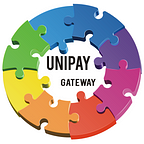Options to Consider if you are not a Payment Facilitator
Recent developments at the payment services market indicate that implementation of the payment facilitator model is a promising solution for many types of businesses. These include franchise owners, venture capital companies, online marketplaces, and others. In order to successfully implement the white-label or full-fledged PayFac model, a company needs to have market expertise and partnerships, as well as merchant solution that allows it to service a portfolio of multiple and, potentially, diverse sub-merchants.
Some companies have the technical solution but lack profound knowledge of the market and acquiring partnerships. Others can be considered market experts, but cannot afford the implementation of technical features to support sub-merchants’ lifecycle. So, what are the options for these companies?
VAR — more than an ISO, but less than a PayFac
Value-added reseller or VAR model was popular long before electronic payments emerged. You might remember a story about a guy who became rich buying apples, washing them, and reselling them at a slightly higher price. The same approach applies to IT industry and electronic payment industry as well. If you are not just reselling merchant accounts, issued by acquirers (like ordinary ISO does), but adding consulting services, fraud prevention, chargeback disputing, or some other useful functionality, you are a VAR. At the payment services market, VAR model emerged simultaneously with PayFac model, and it is still quite popular.
ISV — the “technical part” of a payment facilitator
An independent software vendor (ISV) is a company that provides technical solutions, allowing other companies to automate payment experience for their respective customers. An ISV is, surely, a payment software expert, but not necessarily a market expert. If it finds a beneficial acquiring partner to underwrite it as a PayFac, it can become one. In this case those who accept electronic payments using its software will become its sub-merchants. More responsibilities will bring more profits.
ISO progress
It is tough for a traditional ISO to keep up with the newly emerging market requirements. The options recommended by experts are as follows.
- Next-generation ISO. An ordinary ISO is a “master reseller” of merchant accounts. A next-generation ISO is also a provider of an original technical solution for merchants from its portfolio.
- Wholesale ISO. A wholesale ISO is a large entity that provides merchant services to multiple customers for a fee. Due to large size and diverse nature of its customer base, it can maintain its profits. A high-risk merchant might choose wholesale ISO as an optimal partnership because of chargeback rate loopholes the model provides.
- Merchant services consultancy. Any ISO needs to know the market and its key players. This knowledge is worth a lot, so if you not planning to become a PayFac yet, then why not try to become a merchant consultant? Merchants and software companies will be happy to pay for your expertise.
To summarize
Payment facilitator model is a very lucrative one, but it is not always easy to implement. So, if you are reluctant or unready to become a PayFac, you can stick to VAR, ISV, or some modified ISO model. Feel free to contact our payment specialists at unipaygateway.com to define which model is best for your business case.
